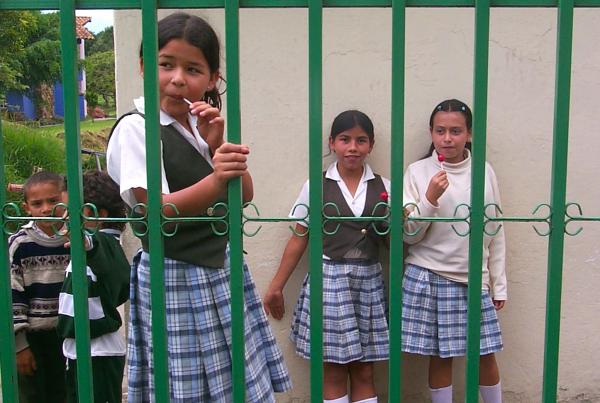For a teacher—just as for a student—summer classes poll at about the same appeal rating as a sandblast colonic. If you can avoid them, feel free to enjoy the long summer holidays, you've surely earned it. For those of us who make a date with Lady Penury at the end of each month—paid for by sunrise drinking and weekend jaunts—then a little summer work is necessary. Luckily, it can be pretty wonderful too.
Classes. Activities. Trip. Sleep. Repeat.
Summer schools are not only plentiful worldwide, they can also be as lucrative to your sense of adventure as to your leaky bank account. Two are rarely alike, even in the same country, but there are certain common truths that prevail worldwide.
In the average ESL summer school the students stay either locally with host families to really immerse themselves in the language, or in school dormitories to immerse themselves in summer romances and customary mischief. Either way, teachers are often expected to be teachers, tour guides, team leaders and activity managers all in one. Think of a mix between Indiana Jones and Jillian Michaels and you've got the archetype.
It's intense and especially when you live in the dorms with the students, you're often “on duty,” even when you're not. Nevertheless, if you mentally prepare for being in a social bubble with a fascinating group of people doing once-in-a-lifetime things then it's an experience like no other. You're often surrounded by a group of young adults from an array of countries; you work with them, play with them, explore new places with them and you'll definitely paint the emotional spectrum with them before you collapse onto a sofa as they're ushered off to an airport at the end of the summer.
Why teach at an ESL summer school?
I've worked a summer school every year for the past four years and I've learned more about countries, cultures and the world from my students than I ever could in a lifetime of travel. If it's a multi-national summer school, in particular, you get the opportunity to witness students from very different cultures interact and explode the misconceptions they dragged with them. How they make friends, express their emotions, experience life, all with the encouragement to integrate they've often never had before; all of which is wondrous to watch.
Sometimes, teachers choose summer schools in their home country (as opposed to their “adopted” countries) and this can be more adventurous than you'd imagine. Some summer schools take in whole groups from the same country and it can be immense fun to see your own culture through the (brutally) honest eyes of a visitor experiencing it for the first time. Questions you'd never thought of in your life become the first baffling conundrums these students come up against. "Why do you put ice-cream in soda?" "Why do you have just one surname?" "Why do you eat pizza with a knife and fork?"(I'm British, and yes I do.)
How to do it
Summer schools are surprisingly abundant worldwide. There are single-nationality ones, multi-nationality ones (usually in counties whose native language is English) and even schools with specific language-learning directives such as “English through Drama,” “- through soccer” or “- through handicrafts,” and all you need is your teaching qualification and the right attitude.
You can find them on a number of websites. Ol'reliable TEFL.com is a great start from about April time when schools begin advertising. There's also Dave's ESL Cafe, which—despite the website looking like a honey trap for black market trade in human organs—a lot of very reputable jobs have been found there I can vouch for personally.
Just remember that, if you decide to do it, you'll be exhausted, emotional, cut off from regular society for six weeks and you'll be able to look back and see how one manic summer can change a student's life forever. If you do it right, it'll definitely change yours too.
Add this article to your reading list




